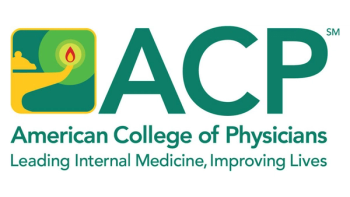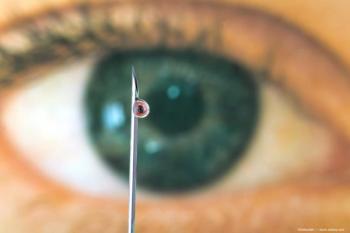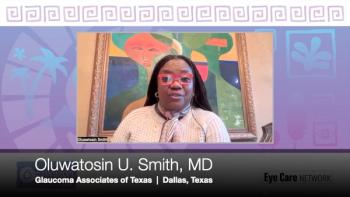
2021 Best Program results: Wilmer Eye Institute grabs top spot
The results are in! Check out how your institution ranked in the 2021 Ophthalmology Times® Best Program Survey.
The year 2021 saw the Wilmer Eye Institute, Johns Hopkins University School of Medicine, Baltimore, snaring the top spot in the Overall Best Program category.
The Bascom Palmer Eye Institute of the University of Miami Miller School of Medicine, Miami, and Massachusetts Eye and Ear, Harvard Medical School, Harvard University, Boston, earned the second and third spots, respectively.
The 3 top winners in the Best Clinical Care Program were the Wills Eye Hospital of Thomas Jefferson University, Philadelphia, and the Bascom Palmer Eye Institute and the Wilmer Eye Institute tied for the number 2 spot.
The 3 Best Residency programs were, respectively, the Wills Eye Hospital, Bascom Palmer, and the Wilmer Eye Institute.
The awards for the Best Research Program went to the Wilmer Eye Institute, Massachusetts Eye and Ear, and Duke University, Durham, NC.
These rankings were determined on the basis of a survey developed by Ophthalmology Times and disseminated to the chairpersons and directors of the residency programs across the US.
Ophthalmology Times congratulates all of the programs and their directors for the continued development of expertise that is clearly recognized nationally by their peers.
Best Overall Program
Wilmer Eye Institute—excellence in all areas
“We appreciate that department chairs and residency program directors around the country have recognized Wilmer in this manner and we offer our congratulations to all the departments mentioned in this survey of our peers,” said Peter McDonnell, MD. He is the director and William Holland Wilmer Professor of Ophthalmology at the Wilmer Eye Institute.
He credits the institute’s uniqueness for its success. “There are a few things that make Wilmer unique. Dr. Wilmer, our founder, was convinced that excellence in any one area, i.e., teaching, research, and patient care, required a commitment to excellence in all three areas. He thought scientists would do better research if they had a clear understanding of the problems faced by patients and their physicians, that physicians would provide better care if their decisions were guided by cutting-edge science, and trainees would be best prepared if they interacted daily with patients, ophthalmologists, and scientists.”
Bascom Palmer Eye Institute: a tradition of excellence over decades
Eduardo C. Alfonso, MD, the Kathleen and Stanley J. Glaser Chair in Ophthalmology, and Director and Chair, Bascom Palmer Eye Institute, University of Miami Miller School of Medicine, explained his institute’s continued success, “A tradition of excellence that began 60 years ago drives every aspect of our operation and is responsible for the continuing success in the high positioning of Bascom Palmer year after year.”
He continued, “We have created an environment where key issues and challenges confronting ophthalmology are debated, where new technology is unveiled, and where ophthalmologists come together to learn, discuss, and teach the best care for patients. Without question, our high rankings would not be possible without our exceptional team of doctors, scientists, nurses, technicians and support staff providing high-quality compassionate eye care to each Bascom Palmer patient.”
As with other programs around the country, the pandemic played a big factor in how Bascom Palmer functioned and rose to the occasion.
“Bascom Palmer, along with vision professionals around the world, was faced with the challenge of delivering vision care during the COVID-19 pandemic. When the outbreak surfaced in March 2020, we made dramatic and swift adjustments in our operations.Our emergency department stayed open to treat patients who needed urgent care, and our physicians continued to serve our patients through telehealth and clinic visits. Our telehealth program is continually expanded, we have instituted a rapid virtual eye care program, we have moved forward with other innovations in ophthalmic technology such as remote slit-lamps for diagnostic imaging and testing devices that our patients can use at home, and our use of artificial intelligence systems to detect eye diseases has increased,” Dr. Alfonso said.
Massachusetts Eye and Ear: talented faculty
“We are immensely proud that Harvard Ophthalmology/Mass Eye and Ear has once again been recognized by Ophthalmology Times as a leading institution for clinical care, research, and education. What sets our department apart is our exceptionally talented faculty who live our mission each and every day,” said Joan W. Miller, MD, the David Glendenning Cogan Professor of Ophthalmology and Chair of the Department of Ophthalmology, Harvard Medical School and Chief of Ophthalmology, Massachusetts Eye and Ear and Massachusetts General Hospital, and Ophthalmologist-in-Chief, Brigham and Women’s Hospital, Boston.
Best Clinical Care Program
Wills Eye Hospital: unprecedented solutions in the face of unprecedented challenges
Julie Haller, MD, Ophthalmologist-in-Chief at Wills Eye Hospital, and Chair, Ophthalmology Department and Professor, Sidney Kimmel Medical College, Thomas Jefferson University, Philadelphia, commented on Wills Eye’s first class ranking, “It is a tremendous honor to earn the recognition of our peers, and I speak for all our Wills faculty in acknowledging the tremendous privilege of sharing with our colleagues all over the country and around the world in the care of patients with complex eye disease. The over-used adjective for this year has been ‘unprecedented’ – but it fits: we rolled out unprecedented solutions for unprecedented challenges and we are so proud of the results!”
She continued, “We have the unique advantage of being an independent eye hospital, so this year we were able to scrupulously comply with all regulations and keep our clinics and operating rooms safe for our patients and staff while still maintaining a very busy clinical, educational and research schedule. It is an advantage that we don’t take lightly! We parlayed our telemedical solutions, our network of affiliated offices and alumni, and our dedicated creative staff committed to the highest standards of excellence into round the clock innovative 24/7/365 care, serving not only our own patients but also providing a safety net for many who otherwise had no options. The highlights were many, but I would single out in particular the esprit de corps. Wills Eye is known as a family, a Band of Brothers and Sisters, but this year brought that out as much as any in our almost-200 year history!”
Bascom Palmer: collaboration on all fronts
“Our researchers and clinicians are at the forefront of research and treatment in ophthalmology, translating basic research into individualized diagnostic and treatment methods tailored to each patient. This collaborative approach has resulted in revolutionary advances in the diagnosis and treatment of glaucoma, age-related macular degeneration, retinal diseases, ophthalmic cancers, eye infection, cataracts and diseases of the optic nerve,” Dr. Alfonso said, explaining their success.
Wilmer Eye Institute: wide range of clinical trials
More than 300,000 patient visit the institute annually, Dr. McDonnell explained, which facilitates clinical trials in all areas, ranging from common conditions like dry eye to rare, orphan diseases, and exposing trainees to a full spectrum of clinical problems.
“The clinical program provides training that encompasses primary to quaternary eye care in locations from stand-alone offices to a hospital-based site. Many of the patients referred to us have complex associated comorbidities or underlying systemic disease causing their ophthalmic problems,” noted Michael Repka, Wilmer’s Vice Chair for Clinical Practice.
He continued, “By drawing upon the specialty resources of the rest of Johns Hopkins Medicine, we can assure that every patient who comes to Wilmer receives the best possible care.”
Best Research Program
Wilmer Eye Hospital: driving future standards of care
“Wilmer’s research today is driving tomorrow’s standards of care. This is accomplished not by lone scientists working on their own, but by teams of scientists, clinicians, and clinician-scientists who through collaboration pool their knowledge and talents to answer key questions that lead us to our ultimate goal: serving the patients who entrust us with their care, Dr. McDonnell described.
In addition, he explained, Wilmer has over 200 full-time academic faculty, which makes many things possible. “Our research programs literally run the gamut from A (artificial intelligence) to Z (zebra fish), and cover everything in between, for example, gene therapy, stem cell technology, regenerative medicine, and nanotechnology. Our research budget exceeds $40 million annually, and the clinical importance of our research contributions is apparent from the fact that Wilmer faculty have formed over a dozen companies to commercialize their findings.”
According to Laura Ensign, PhD, and Vice Chair for Research, “Wilmer is a truly unique interdisciplinary research environment that brings together basic scientists, translational scientists, clinician scientists, and entrepreneurs to focus on solving key unmet needs in patient care. Our emphasis on collaboration and translation ensures that we can continue to make meaningful impacts in the lives of people with eye disease.”
Massachusetts Eye and Ear: landmark breakthroughs
Mass Eye and Ear has seen landmark breakthroughs in anti-vascular endothelial growth factor therapies, surgical techniques, ocular imaging, laser surgery, pro-regenerative therapies, and gene therapy.
“The department’s dedication to clinical innovation has established many new benchmarks in ophthalmic care that are defining clinical excellence worldwide and bringing hope and healing to millions of people,” Dr. Miller stated.
The department, she pointed out, provides an unparalleled learning environment and continues to enhance its offerings to ensure that it develops outstanding clinicians, clinician scientists, and researchers who are primed to become tomorrow’s leaders in the field.
“A key focus area for us this year has been expanding our efforts to increase diversity in our field by mentoring students who are interested in ophthalmology earlier in their academic careers and offering them continued support and guidance as they progress. This summer, we launched the Harvard Ophthalmology Research Scholars Program, where first-year medical students from underrepresented groups joined the department for an immersive experience in ophthalmology. Our department program focuses on creating awareness about science/STEM/medicine and ultimately, ophthalmology from childhood through medical school. We also support our own faculty and trainees as they grow professionally,” she said.
Bascom Palmer: high impact research
Dr. Alfonso cited the institute’s resources and diverse portfolio.
“Our currently active awards total $40 million, including $18 million from the National Institutes of Health and $22 million from other sponsors. We are promoting high-impact research in gene therapy, stem cell therapy, and gene editing therapy; developing new technology, such as biomaterials, drug delivery, instruments for imaging, electrophysiology, surgery, and artificial vision; generating interdisciplinary collaborations; and using artificial intelligence to take advantage of large data sets. We have a very diverse research portfolio that combines our strengths in scientific discovery and clinical care,” he said of the fourth place ranking.
Best Residency Program
Wills Eye Hospital: award-winning staff
Dr. Haller cited the high-quality staff.
“Across the three pillars of our mission, we at Wills have the great good fortune to be stacked with Heisman Trophy-class eye physicians and surgeons, residents, fellows, and research scientists. I always feel as if every day is the Pro Bowl, or the All-Star game – it makes walking in the door every morning a thrill. There are so many surveys out there now that I don’t know how so many people find the energy and kindness to fill them all out; but we are humbled and honored to be recognized so generously. I believe that our colleagues have the insight to recognize the hard work, the relentless commitment to excellence, the unflagging curiosity that spurs investigation and innovation, and the dedication to teaching that characterize life here at Wills Eye Hospital."
Bascom Palmer: stimulating environment
Steven J. Gedde, MD, John G. Clarkson Chair in Ophthalmology, and Vice Chair for Education at Bascom Palmer, commented on the residency program.
“The Bascom Palmer Eye Institute has a collegial atmosphere that optimizes patient care and promotes learning. We have a depth of faculty in each subspecialty area, and they are all deeply committed to teaching the next generation of ophthalmologists.”
He also mentioned how the diversity of a large city environment expands the residents’ experience.
“When our residents begin their training here, they join an exciting environment that helps them fully realize their highest potential. Bascom Palmer’s 24/7 ophthalmic emergency department, one of only a few in the country, provides unparalleled training on a wide variety of eye disorders with all levels of complexity.Furthermore, Florida’s large senior population coupled with many patients from Central and South America enable our residents to see patients with a wider spectrum of eye disease than typically seen in other parts of the country.This range of pathologies, coupled with the superb academic instruction by our dedicated faculty, is complimented by a formal mentoring program, and a leadership team who provides unwavering support for our residency program,” Dr. Gedde described.
Wilmer Eye Institute: focus on future leaders
The institute’s residency is deliberately small, i.e., 5 residents annually, compared with many others because, Dr. McDonnell noted, “Wilmer faculty has always focused their efforts on developing the future leaders of our field. We are delighted that this year, the President of the American Academy of Ophthalmology, Tamara Fountain, MD, and the Director of the National Eye Institute, Michael Chiang, MD, are both graduates of our residency program, and are pleased that in its 95-year history Wilmer has seen over 110 of its trainees go on to become department chairs.”
Divya Srikumaran, MD, Vice Chair for Education at Wilmer, added, “We are lucky to recruit the brightest residents and fellows from a very talented pool of applicants each year.”
Residency Program Director Fasika Woreta, MD, MPH, concurs, “Our trainees benefit from the mentorship of internationally known faculty in the delivery of clinical care and research during their training and beyond. Undoubtedly, it is our world-class faculty, trainees, and facilities that make our residency program the top in the country.”
Massachusetts Eye and Ear: new residency program
Alice C. Lorch, MD, MPH, assistant professor of ophthalmology and director of the Ophthalmology Residency Training Program, Harvard Medical School, and associate chief for Quality, Department of Ophthalmology, Harvard Ophthalmology/Mass Eye and Ear, commented on the program’s focus.
“Our goal is to train the next generation of leading ophthalmologists who are committed to patient care and clinical excellence. Our faculty are world-class leaders in all areas of ophthalmology, and our residents have the opportunity to work side-by-side with them each day in clinic and in the operating room. As one of the few 24/7 Ophthalmic Emergency Departments in the country, our residents benefit from seeing a wide range of clinical and surgical pathology."
Massachusetts Eye and Ear Something boasts a new and exciting program, she explained, the Residency Training Program is the transition to a 4-year integrated residency program.
“Our interns join the Transitional Year Internship Program at Newton-Wellesley Hospital, an exceptional 270-bed teaching hospital just outside of Boston that is also part of the Mass General Brigham Health Care System. The program at Newton-Wellesley offers a collegial and welcoming environment for our residents, while still being academically rigorous—with training in both medicine and surgery. As part of that PGY-1 year, residents rotate at Mass Eye and Ear for 3 months so that they can get a head start on their ophthalmology training and get to know our faculty and their co-residents. Our PGY-1 residents participate in surgical simulation in our state-of-the-art surgical training lab, as part of our extensive, multi-year, program of training in this space," she said.
Another change has been the continued expansion of the Resident Wellness program. “We’ve made wellness and resilience-promoting programs for trainees a priority because the wellness of our residents affects not only themselves and the people in their lives, but also our patients and the hospital community. Our Wellness program includes a structured psychologist-led annual curriculum, extensive mentorship opportunities, and a resident-led, program-funded wellness committee,” Dr. Lorch said.
See last year's results:
Newsletter
Don’t miss out—get Ophthalmology Times updates on the latest clinical advancements and expert interviews, straight to your inbox.





























